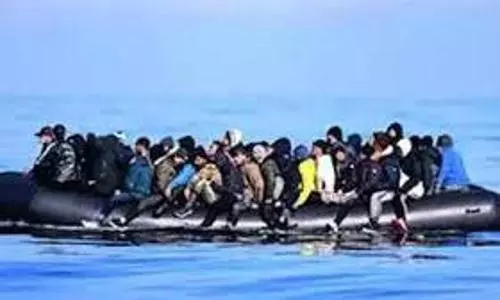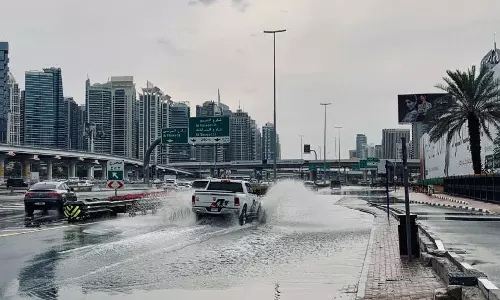
A fourth of global internet users liable to targeted attacks: report
text_fieldsIANS.
New York: A study found that a quarter of the world's internet users live in countries that are more susceptible to targeted attacks on their infrastructure than previously believed, IANS reported.
The study, conducted by the University Of California San Diego, subjected 75 countries and 34 out of them have transit ecosystems that render them seriously exposed. There, a single autonomous system is privy to traffic destined to over 40 per cent of their IP addresses, the study found.
In developed countries like the US, a large number of Internet providers compete to provide services for a large number of users. These networks are directly connected to one another and exchange content through the process known as direct peering. All the providers can also plug directly into the world's Internet infrastructure. But a large portion of the Internet doesn't function with peering agreements for network connectivity, according to Alexander Gamero-Garrido, from UC San Diego.
Further, in other nations, most users rely on a handful of providers for Internet access, and one of these providers serves an overwhelming majority of users. The providers rely on a limited number of companies called transit autonomous systems to get access to the global Internet and traffic from other countries, and these transit autonomous system providers are state-owned, the study says.
These countries with this type of Internet infrastructure are specifically vulnerable to attacks since crippling a small number of transit autonomous systems is enough for that. Also, if the main Internet provider experiences outages, it will affect the whole country, the report says.
In Cuba and Sierra Leone, one transit autonomous system serves all users, which is the most dangerous situation. The study says that Bangladesh has moved from only two to over 30 system providers acquiring more stability in this regard.
Therefore, the researchers underscore that government regulation is essential to the number of Internet providers and transit autonomous systems available in a country.
The research inferences were presented at the Passive and Active Measurement Conference 2022 online.























